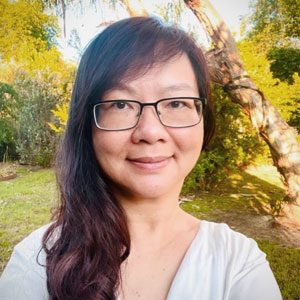In the early 1990s, I flew from my wintery homeland to the sunburnt country of Australia—which my geography teacher used to call “a nation riding on the sheep’s back.” In my backpack there was a copy of Haizi’s (1964–1989) first published book of epic poetry—The Land (《土地》). His raw but simple language of poetic pursuit and his dramatically shocking suicide, like a rope, pulled in an entire generation of Chinese. His book also accompanied me on my long, wandering journey in a foreign land. I marked many of those poetic lines as I traveled. Like a piece of wood, they carried me on the sea, drifting and searching for life’s meaning and purpose in the disembodied self of the postmodern West.
In the second year of my arrival, something dramatic happened. When the gospel was shared in a small apartment near my university, I started to read the Bible and finally encountered the living water that I was so desperately searching for. Crossing over from the abyss, however, only marked the beginning of a new journey. But…what about my friends who grew up with me? What about Haizi’s poetry that shook my generation and still impacts the current generation? What have those poignant poetic lines to do with faith or theology at all? Some Christian leaders told me I ought to throw away those poetry books written by non-Christians. I hardly heard anything that had to do with Chinese poetry in theology classrooms, nor did I find anything in that regard in seminary libraries. Yet, that deep sense of poetic nostalgia and yearning to belong to “home” continued to linger and remain, even on my journey of faith.
It was a strong resonance with Haizi’s profound search for homecoming and the “violent extremeness” (冲击极限) of death that led me to walk again with this poet who, though dead, continues speaking to millions of Chinese today. This time, however, the journey is alongside the path of Jesus on his way home in Luke’s gospel and who shows a life of faith in communion with God. I hope to continue walking the unfinished road of Haizi with this generation of Chinese, accompanied by the God-man Jesus.
To do so, my book, A Dialogue between Haizi’s Poetry and the Gospel of Luke, paints poetic and contextual colors on Luke’s theological canvas. By re-reading the biblical texts through a poetic lens and engaging in a dialogue going deep into the cultural soil of the land and people, the world may hear the songs, cries, and yearnings from China’s “wheatfields” and what it means to hear the good news in contemporary Chinese settings. Through poetry, the spiritual language of life, I hope new avenues for ongoing engagement between Chinese culture and the Christian faith are opened in an aesthetic dance.
This monograph has gone through many twists and turns along the way, from its conception, writing, submission as a doctoral dissertation, publication in English (Brill, 2018), to the advent of the Chinese translation version (foreword by K. K. Yeo), 《一場海子詩歌與路加福音的對話:中國人的回家之路與耶穌基督的關係》(2022). This joy of bearing fruit is like that of a woman who gives birth, forgetting the former pain. Perhaps this is the way home, twisting and turning, with hope in suffering, and patience in brokenness. Indeed, the whole process was not only that of writing a multi-dimensional book that traverses ancient and modern, crosses East and West, connects urban and rural, and joins heaven and earth, but also that the thoughts, characters, words, and images that appear in the book were simultaneously writing and (re)shaping my own homecoming journey.
However, this is only the beginning. My hope is that tens of millions of Chinese around the globe, as well as anyone who loves Chinese people, will participate in this dialogue of homecoming, and together embark on the journey towards home. May the faithful dance with joy, freedom, and shalom. My poem “Return”1 beckons with the call:
When the running feet stop
the open wings turn back again
My home
with golden wheat swaying in the mature season
Watch for me till the day I see you again
Editor’s Note: Dr. Yang’s book is available in both English and Chinese, in paperback and electronic versions from several different online outlets.
A Dialogue between Haizi’s Poetry and the Gospel of Luke, in paperback and PDF from Brill and in paperback from Amazon.
《一場海子詩歌與路加福音的對話:中國人的回家之路與耶穌基督的關係》, available in paperback and EPUB format from Olive Huaxuan Publishing Group and in Kindle format from Amazon.
Endnotes
Image credit: Sammy Wong via UnSplash.

Xiaoli Yang
Rev. Dr. Xiaoli Yang is an Australian Chinese theologian, pastor, poet, and spiritual director. She is currently serving Australian Association of Mission Studies and on the editorial board of Australian Journal of Mission Studies. View Full Bio
Are you enjoying a cup of good coffee or fragrant tea while reading the latest ChinaSource post? Consider donating the cost of that “cuppa” to support our content so we can continue to serve you with the latest on Christianity in China.